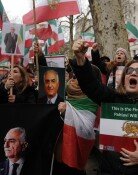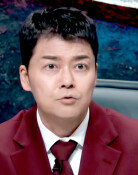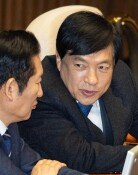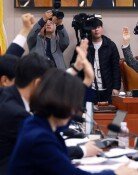President-elect Yoon Suk-yeol’s lineup of new Cabinet
President-elect Yoon Suk-yeol’s lineup of new Cabinet
Posted April. 14, 2022 08:04,
Updated April. 14, 2022 08:04
President-elect Yoon Suk-yeol has tapped Kim Dae-ki, former chief presidential secretary, as his chief of staff. The long-time bureaucrat served as the secretary for economic policies under the Roh Moo-hyun administration and the senior presidential secretary for economic affairs and chief presidential secretary under the Lee Myung-bak administration. It appears Yoon, who has put emphasis on the economy, picked an economic expert as his chief of staff in order to complete his team of economic experts.
The problem is Prime Minister nominee Han Duck-soo and Finance Minister nominee Choo Kyung-ho are also former bureaucrats. Han served as minister of finance and economy and deputy Prime minister of economy after working for the Ministry of Commerce and Industry, and Choo served as vice minister of strategy and finance, and the head of the Office for Government Policy Coordination. In addition, Industry Minister nominee Lee Chang-yang worked for the Ministry of Trade, Industry and Energy for 15 years, and Oceans and Fisheries Minister nominee Cho Seung-hwan worked for the fisheries ministry. This means most of the top positions that will influence the country’s economic policy will be filled with bureaucrats.
The strengths of seasoned bureaucrats, who built careers in government organizations, are that they have stable work performance. However, these strengths often come in the way of regulatory reform that aims to shift the economic paradigm to private-oriented systems and reduce government authority. President-elect Yoon emphasized that he will get rid of unnecessary regulations that are like a stone in your shoe and Finance Minister nominee Choo said he will break the shatters that are holding back businesses, but Yoon’s transition committee has not even presented a general picture of the overall regulatory reform.
The economic policy tools available for the incoming administration are severely limited since it is surrounded by unfavorable factors. Fiscal policy has hit its limits due to the country’s national debt increased by more than 400 trillion won during the current administration. With household debt approaching 1,900 trillion won, the Bank of Korea has no choice but to raise interest rates despite fears of economic slump. The only options available for the new administration are attract business investment and add more jobs through regulatory reform. For instance, the new administration can help SK Hynix’s semiconductor cluster construction project in Yongin, which has been put on hold for more than three years, and add flexibility to the 52-hour workweek rule.
Former presidents also made efforts to reform regulations, comparing them to “electric poles,” “a thorn under the fingernail,” and “red flag,” but were all unsuccessful. It was because they let bureaucrats, who created new regulations and relied on regulations to exercise their rights, lead the regulatory reform. If President-elect Yoon really wants regulatory reform to succeed, he should minimize the influence of bureaucrats, establish a system, where the voices of the private sector can be properly heard, and take care of the results of the reform.







